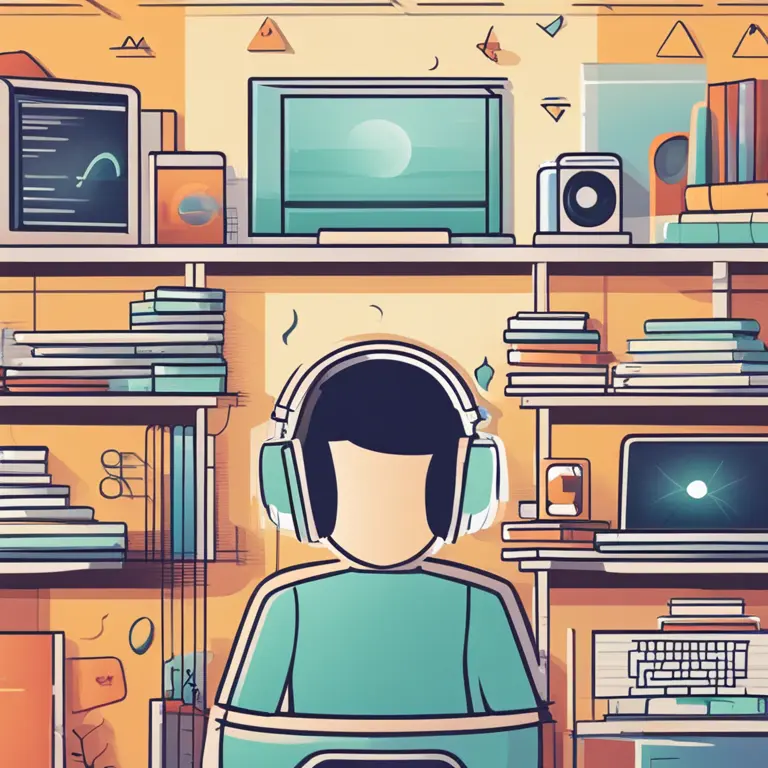
Calm Within: Meditation Practices to Ease Anxiety
Discover how meditation can soothe the anxious mind and bring peace to your daily life with effective, timeless strategies tailored for modern stressors.
article by Hina Kurosawa
The Rise of Anxiety in a Modern World
With the advent of a more interconnected world, the experience of anxiety has evolved. While anxiety is a timeless human condition, its triggers have amplified in the digital age of 2024. The overwhelm of information, the pressure of social media comparisons, and the relentless pace of change contribute to heightened stress levels. Meditation offers a sanctuary from the chaos, a method tested by time, now supported by scientific research demonstrating its efficacy in reducing stress and improving mental well-being.

Understanding Anxiety and Meditation
Anxiety manifests as an overactive fight-or-flight response, with symptoms that can hinder daily functioning. Meditation acts by engaging the parasympathetic nervous system, which encourages relaxation and counters stress responses. As we enter deeper states of meditation, our brainwaves shift, inducing a sense of calmness that can fortify us against anxiety's grip. Even in a fast-paced society, the practice of meditation can become a haven for those seeking reprieve.

Breathing Techniques for Immediate Relief
Controlled breathing is at the heart of many meditation practices and is particularly powerful in managing acute anxiety episodes. Techniques such as diaphragmatic breathing, the 4-7-8 method, and alternate nostril breathing are simple yet effective tools that can be done anywhere. These methods help to reset the stress response and elicit a relaxation effect. In our ever-busy lives, such techniques become essential self-help tools for managing stress.

Cultivating a Regular Meditation Practice
To experience the full benefits of meditation for anxiety, regular practice is key. Establishing a daily routine, whether it's a few minutes in the morning or unwinding after work, builds resilience over time. The calmness cultivated during meditation can extend into other areas of life, creating a buffer against the unpredictability of modern stressors. Encouraging consistency, meditation apps and virtual communities offer support and guidance in fostering this habit.
Mindfulness: Presence Over Worry
Mindfulness meditation, which focuses on present-moment awareness, is particularly adept at countering the relentless 'what ifs' that anxiety often proliferates. By training attention on the here and now—on breath or bodily sensations—mindfulness can break the cycle of worry and bring about mental clarity, offering a reprieve from concerns about the future or ruminations of the past. In an era where multitasking is the norm, mindfulness can transform our relationship with time and stress.
Technological Aids in Meditation Practice
As we embrace digital solutions in various aspects of our lives, technology has also found a place in enhancing meditation practice. From wearable devices that monitor physiological stress markers to apps that provide guided meditations tailored for anxiety relief, technology aids in personalizing and tracking progress. In a society that values data, this digital integration makes meditation a more approachable and measurable tool for those wary of its intangible nature.
Embracing Challenges along the Meditation Journey
As with any new practice, obstacles in meditation are normal. Initial discomfort, restlessness, and impatience often deter people from continuing. However, these challenges are part of the learning curve. It's important to approach meditation with compassion and without judgment, understanding that the path is unique for each person. Overcoming these barriers not only aids in conquering anxiety but also in building personal strength and self-awareness.
Published: 1/24/2024
Modified: 1/24/2024
More predictions
Come back here soon to learn more about yourself and your future


Effective Meditation for Contemporary Life
Discover the meditation methods that best suit the fast pace of contemporary life and how they enhance mental and emotional well-being.


Soothing Sleep-inducing Meditation Techniques
Discover effective sleep-inducing meditation strategies in this enlightening article. Learn to drift into deep, restful slumber with ease.


Meditation Techniques for Individuals With ADHD
Discover effective meditation practices tailored for individuals with ADHD to improve focus, reduce hyperactivity, and foster a sense of calm.